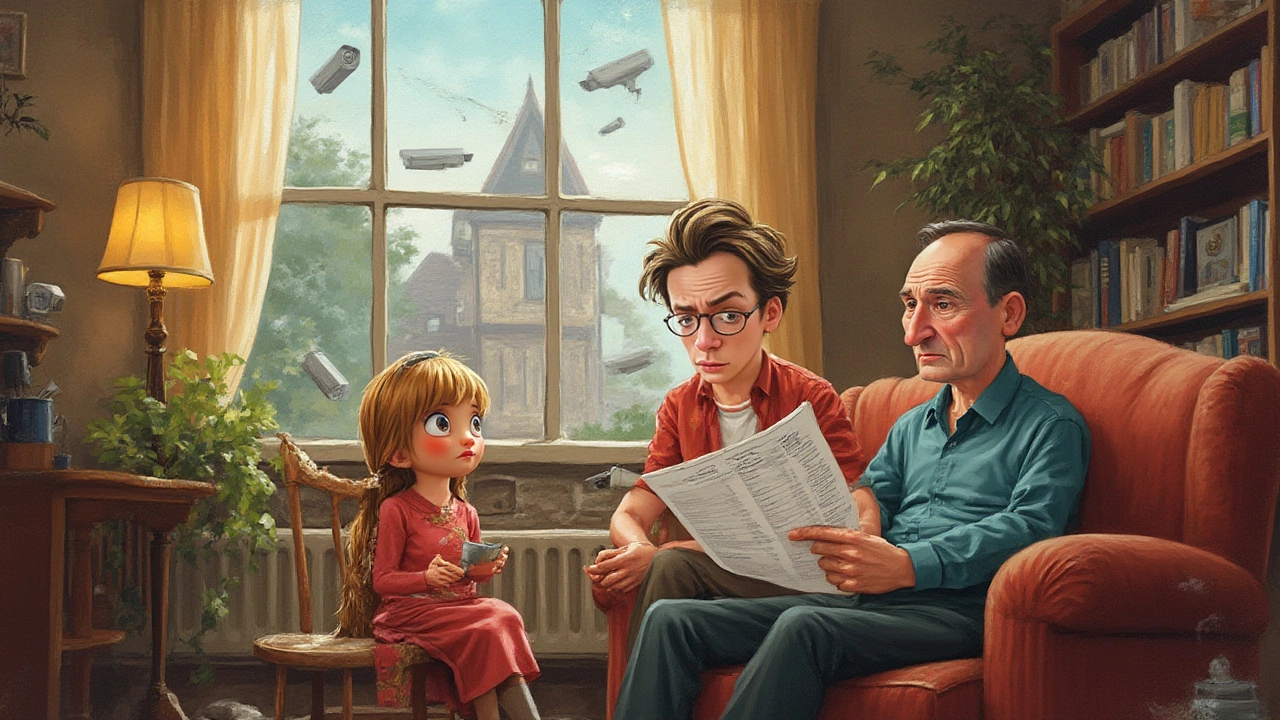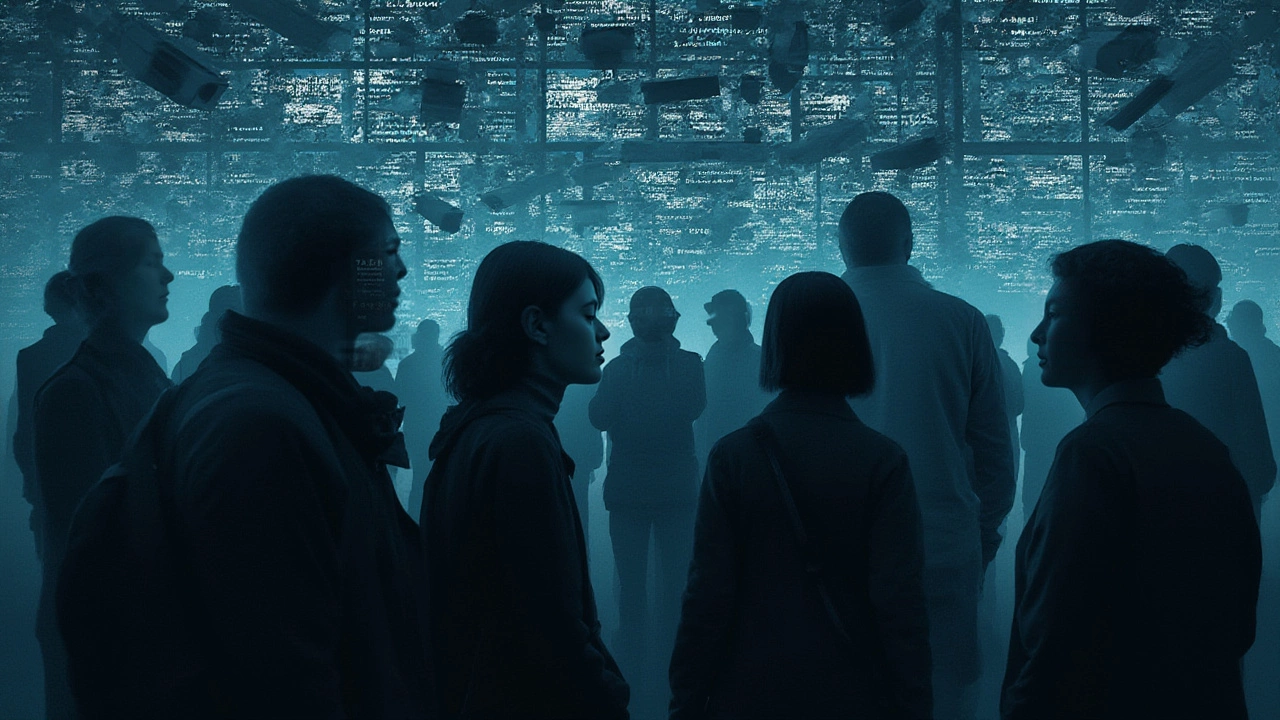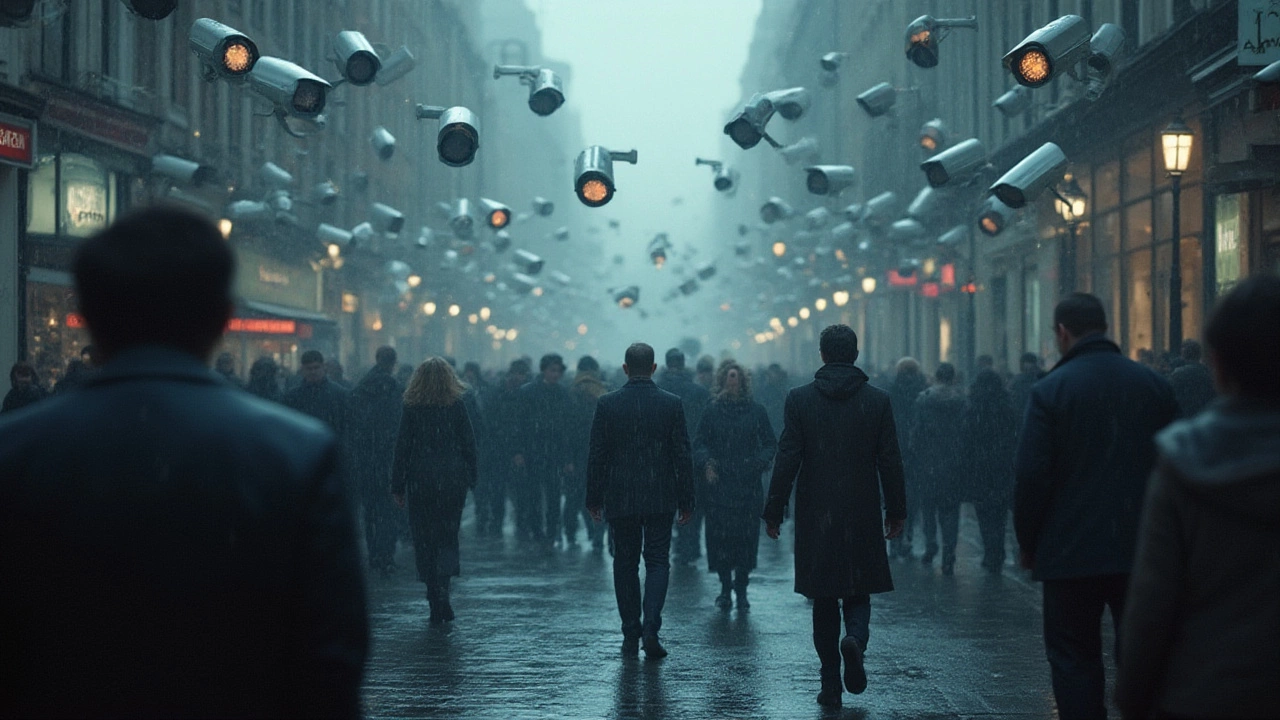Ever noticed a new CCTV camera pointing right at your street, and wondered whether it’s really making the neighborhood any safer—or just watching you pick your nose in the car? The tables have turned in our always-connected, always-watched world. Security cameras feel pretty standard now, but the truth is, their downsides aren’t talked about nearly enough. It’s not just about that uneasy feeling of being watched. There’s a lot going on beneath the surface—flaws that don’t pop up in the sales pitch or those glossy brochures promising peace of mind. So let’s crack open the box and see what kind of headaches can crawl out when you say yes to CCTV.
Hidden Costs and Maintenance Nightmares
CCTV systems may seem like a one-off purchase, but the bills don’t stop rolling in once you’ve mounted a few cameras on the wall. The real cost goes way deeper than the price tag at the electronics shop. For starters, installation isn’t always a DIY job—especially if you want the wiring hidden, the angles right, and no black spots for would-be troublemakers to slip through. Professional installation can easily set you back hundreds—or even thousands—of dollars, depending on how fancy you go or how big your property is.
Next up: ongoing maintenance. Cameras aren’t set-it-and-forget-it gear. Lenses get dirty, firmware needs updating, wires corrode or get chewed by critters, and storage hardware can overheat and fail. Many folks spring for a maintenance contract so technicians check all this regularly. If you skip that? Problems might slip under your radar until the system fails right in the middle of a break-in—a disaster that’s happened in real life, way more times than you’d think.
Then there’s storage. Someone has to pay for all that data. Even a modest home system recording high-res video onto a basic hard drive can chew through terabytes of storage shockingly fast. Want continuous recording with easy access? You’ll probably need to pay monthly for cloud backups. It sounds cheap at first—maybe $10 or $20 a month—but start running the math over a few years, and that bargain system transforms into a hungry money pit. Lose internet during a storm or an outage? Say goodbye to your live cloud stream, and hope nothing bad happens at just the wrong moment.
Insurance is another sneaky expense. Some insurers offer discounts if you install CCTV, but others might actually hike your premium if they judge you’re at more risk of lawsuits or if your cameras create blind spots that fake a sense of safety. Crazy, right? Factor in possible repair costs if the system gets vandalized: a thrown rock, a spray of paint, or someone with a $20 jammer from the internet interrupting your Wi-Fi feed—all these leave owners with surprise costs and no coverage. And, of course, cameras get old. Technology moves fast. If you want image quality usable in court, you’ll need to fork out for new gear every few years, which nobody mentions upfront.

Privacy, Legal, and Ethical Headaches
Let’s get real—privacy is a hot-button issue today for a reason. The moment you set up a CCTV system, you’re instantly navigating a legal and moral minefield. One of the top complaints about CCTV isn’t the cost, but the fact that cameras genuinely make people uncomfortable. A study in 2023, out of the UK, found that more than half of residents surveyed felt less at ease in neighborhoods peppered with cameras. Having unwanted eyes everywhere has a way of making people wonder what’s being recorded, why, and who might be watching them later.
The law can be a maze. Recording faces or conversations without permission is illegal in a lot of places—especially if your camera points at a public sidewalk, your neighbor’s window, or even your own front porch where delivery drivers and guests come and go. Violating these privacy laws isn’t just a slap on the wrist; people have been fined, forced to take down their systems, or even sued by angry neighbors. And trust me, neighbor disputes over cameras spiral fast. I’ve seen entire online forums devoted to feuds about where cameras are aimed.
There are ethical dilemmas, too. For example, kids may play outside in view of your camera. Guests at parties may not realize they’re being recorded—and your own friends might start declining invites if word gets out your home is always “on the record.” Some people argue surveillance changes how you behave, makes you less spontaneous, or that it sends the wrong message—like you don’t trust anyone.
Data hacks and leaks make it even messier. In 2021, hackers actually broke into thousands of private CCTV systems—including cameras inside offices, hospitals, schools, and homes—in a widely reported breach. Not only did the hackers get live video feeds, they even caught security staff lounging on duty. All it took was a weak default password. If your camera records audio or stores footage online, you’re taking an even bigger gamble. Even major camera makers have been caught with sloppy software or default login bugs, so it’s not just a problem with cheap no-name brands.
Here’s a tip: If you do use CCTV, never skip making it clear to everyone visiting your home or business. Put up visible signs warning people they’re being recorded. Use tamper-proof passwords and two-factor authentication, and avoid sharing access links with anyone who doesn’t absolutely need it. That cuts down on both legal gripes and drama among friends and family.

False Sense of Security and Real-World Pitfalls
Let’s bust one myth: CCTV doesn’t magically stop crime. There have been cases where cameras did little to scare off determined burglars—they simply cover their faces, pick their moment, or disable the cameras in seconds. The British Journal of Criminology ran a real-world study: In some spots, burglars actually targeted homes with visible cameras, figuring there might be more valuables worth stealing! It sounds wild, but it’s happened. Cameras catch crime on film, but they rarely prevent it. And once something bad does happen? Law enforcement can sometimes barely use the footage—bad angles, blurry faces, dim night lighting. Trusting a camera system alone can make owners let their guard down, skip locking up, or ignore other basic steps, and that’s led to break-ins that could’ve been stopped by a simple deadbolt.
Tech failures are another headache nobody loves to talk about. Cheap CCTV cameras may fail in cold weather. Even expensive brands lose video in rain or glare. Backup batteries for recorders run down fast in outages. A camera aimed right at the blazing sunset might miss anything but silhouettes during half the day. And then there’s the hassle of sorting footage—if you’ve ever tried to scroll through a week of recordings looking for one event, you know it turns into a full-time job. Police departments often struggle with low-staffing to review private footage even if they request it.
Then there’s the overload of false alarms. Motion-sensing cameras can ping your phone all day for every leaf blown by the wind, a wandering cat, or delivery trucks turning around. Too many false alarms, and you get numb—you start ignoring them, which means you’ll probably miss the one time a real thief pops up. Some modern systems have AI detection to try to cut down on this, but the tech’s far from perfect. Missed alerts or software bugs can mean burglaries get missed, while you end up panicking over nothing more than the neighbor’s dog making rounds.
People don’t often think about how easy it is to make mistakes setting up cameras, either. I’ve seen homeowners angle cameras straight at the ground or sky, skip out on weatherproofing, or forget about cleaning off cobwebs—leaving them with “security” systems that record, basically, nothing. Even smart features like license plate recognition can fail if a car’s too fast or the lighting changes. Sometimes criminals get clever: stories have popped up about burglars using cheap laser pointers to blind camera sensors, or tossing up a bag to clock out lenses long enough to slip past.
For renters, it’s a legal pain to even install a system in the first place; most landlords say no unless it’s temporary or reversible, and tampering with exterior walls could cost you your deposit. For business owners, the rules get even stricter, with requirements to store footage for months, encrypt files, and provide access to authorities—all that pushes costs and risks way higher. If you screw it up, you’re suddenly on the hook for lost footage or privacy violations.
At the end of the day, CCTV offers peace of mind for some. But if you’re banking on it as the ultimate solution, you’re signing up for bills, privacy headaches, and a false sense of safety—on top of the basic hassles nobody tells you about until it’s too late. Think of it like this: rather than “set it and forget it,” you’re buying into a never-ending project that wants your cash, your attention, and your caution—every single day.

